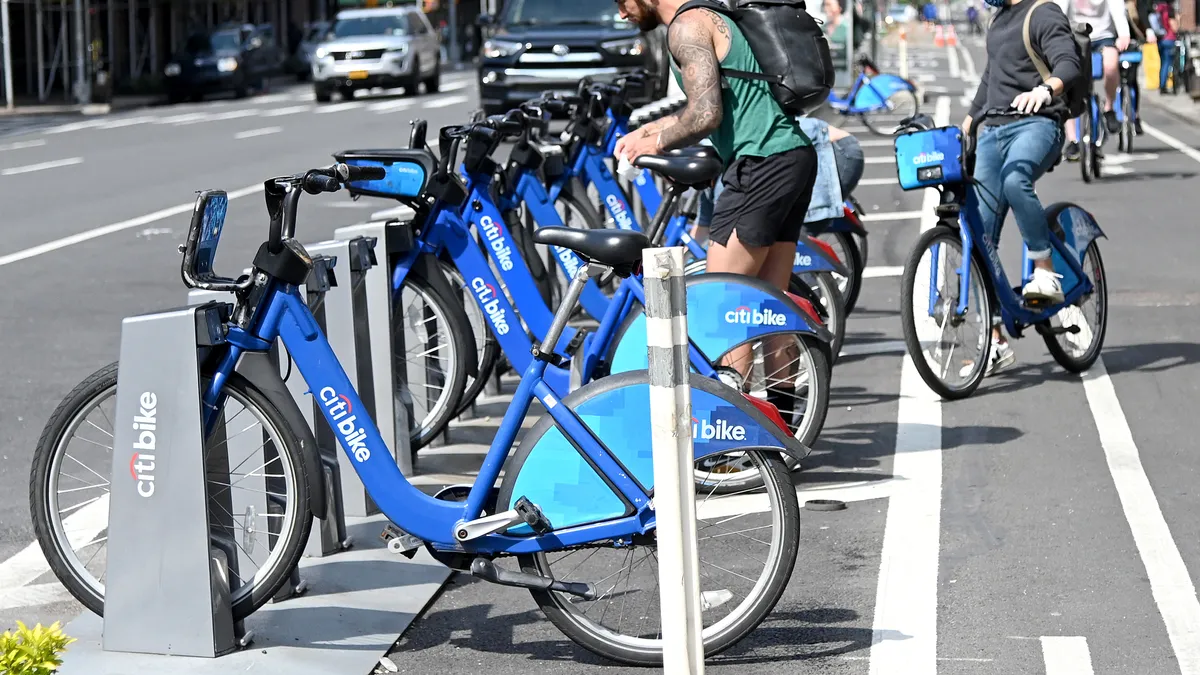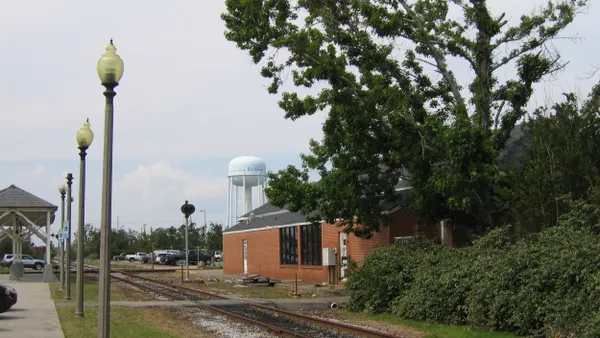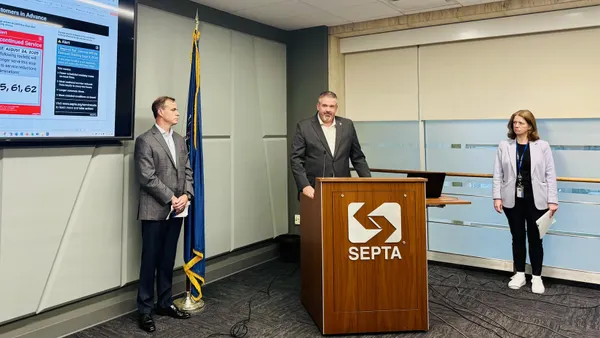Dive Brief:
- CHICAGO – Over 50 public, private and nonprofit organizations have teamed up to announce a major initiative that supports shared mobility options as the preferred transportation choice over private cars.
- The Shared Mobility Action Agenda, announced at the 2022 National Shared Mobility Summit, aims to make shared mobility more convenient, practical, accessible, affordable and available than private cars by 2030.
- The Shared Mobility Network plans to release the first version of its agenda this summer. The network's immediate goal is to continue growing the number of participating organizations, which currently include the Shared-Use Mobility Center, the Coalition for Reimagined Mobility, the Southwest Pennsylvania Commission, Via and Full Path Transit Technology.
Dive Insight:
The network’s agenda comes at a pivotal moment for car ownership and transportation in general.
High gas prices have “made us painfully aware of our over-reliance on cars,” Shared-Use Mobility Center CEO Benjamin de la Peña said in a statement. Meanwhile, consumer interest in electric vehicles — which are considered a mitigation solution to the climate crisis — is on the rise, but the cost of buying one remains prohibitive to many. EVs are “never going to be enough” to mitigate the effects of climate change and they won’t address issues like congestion or equity, de la Peña told Smart Cities Dive.
The push for shared mobility also comes as traffic fatalities are increasing in the U.S., with an estimated 17% increase in pedestrian deaths during the first six months of 2021 compared with the same time period the year prior. People of color and older adults are also disproportionately killed by drivers nationwide. Black people were struck and killed by drivers at an 82% higher rate than White non-Hispanic people over the last decade, according to a 2021 Smart Growth America report.
Among the group’s agenda items, de la Peña said they will include an equity index. The network leaders aim to standardize how they measure the equitable impacts of shared mobility options across modes and cities in order to inform and improve how people get around. Another agenda item will include decarbonizing shared mobility lifecycles. Micromobility companies have been criticized for emitting emissions via their operations and sometimes short vehicle lifecycles.
"The devil is always in the details,” said Kevin Chambers, founder and principal of Full Path Transit Technology, in a statement. “There are so many ways that shared mobility can be done wrong. Getting so many organizations and individuals with different perspectives together to collaborate on the best paths forward will help ensure we make measurable advances on shared mobility."
As the network embarks on rolling out its agenda, de la Peña said he anticipates that one of their biggest challenges will be changing the narrative around shared mobility. For decades, “freedom” has been equated with cars in the U.S., but he said the group's goal is to reframe shared mobility as a way for people to be unburdened from automobiles.











